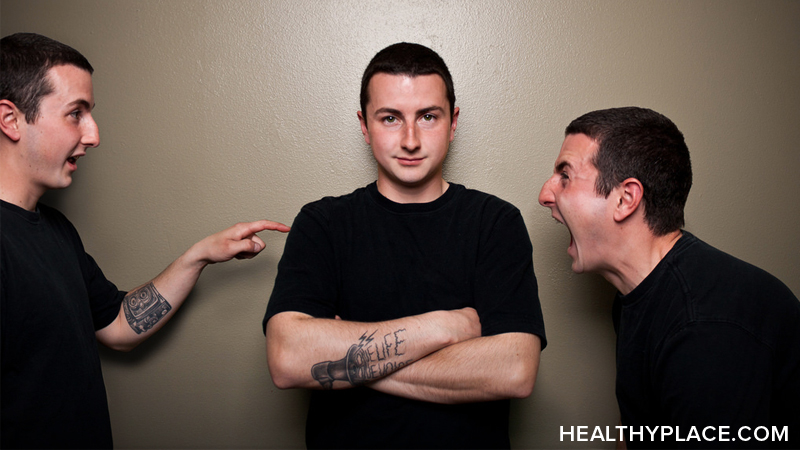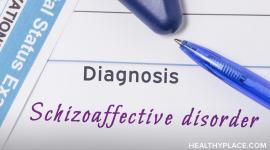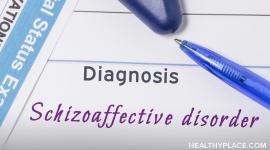What Is Schizoaffective Disorder?

Schizoaffective disorder is a serious mental illness that combines the symptoms of psychosis and the symptoms of a mood disorder. This means that a person with schizoaffective disorder may suffer from delusions and/or hallucinations as well as depression and/or mania.
Schizoaffective disorder is a relatively rare disorder and has been little studied but it is estimated to affect 0.32% of the population. The cause of schizoaffective disorder is not known but genes and brain chemicals (neurotransmitters) may play a role. Some doctors believe that schizoaffective disorder is simply a variant of schizophrenia and not a separate disorder in its own right.1
Diagnosing Schizoaffective Disorder
Diagnosing schizoaffective disorder is very difficult because it can be confused with the diagnosis of a mood disorder like bipolar disorder or depression, or be confused with the diagnosis of schizophrenia. It's only with extremely careful screening, testing and interviewing that a person can be diagnosed with schizoaffective disorder. In fact, reassessing the diagnosis over the course of the illness may even be necessary to ensure the correct diagnosis has been made.
When diagnosing schizoaffective disorder many other disorders have to be ruled out, like:2
- Bipolar disorder
- Major depressive disorder
- Schizophrenia
- Substance abuse
- Seizure disorder
- And others
Persons with schizoaffective disorder may be of a bipolar type if they experience mania or mixed mood episodes. A person with schizoaffective disorder who experiences depression but not mania has schizoaffective depressive type.
Because of the extreme variance (from mania to depression to psychosis) of symptoms experienced by a person with schizoaffective disorder, the patient may present with any number of symptoms.
For example, a person with schizoaffective disorder may:
- Appear from well-groomed to disheveled
- Exhibit anything from appropriate to flattened emotion
- May be depressed, manic or neither
- May or may not be suicidal or homicidal
And so on. Many of the criteria counted on by doctors to make a confirmed diagnosis of a mental illness can't be relied upon in this disorder. It's only after a complete exam and a true comprehensive picture of the person that a diagnosis for this difficult disorder can be settled upon.
(Please go here for more information on the symptoms of schizoaffective disorder and the diagnostic criteria of schizoaffective disorder.)
Schizoaffective Disorder Outlook
While schizoaffective disorder can be a very challenging disease for both the patient and doctor, the outlook is not all negative. The outlook (prognosis) of the illness is generally considered to be better than schizophrenia alone (although worse than a mood disorder alone). Those with schizoaffective disorder of a bipolar type are thought to fair similarly to those with bipolar I disorder, whereas those with schizoaffective disorder of a depression type are thought to have a prognosis more similar to those with schizophrenia.
These prognoses, though, are extremely hard to give to any individual and lack of research studies makes them difficult to determine overall.
Schizoaffective Disorder and Suicide
One important point to remember in people with schizoaffective disorder is the rate of suicide is approximately 10%. In this population other notable suicide factors include:
- Caucasians have a higher rate of suicide than African Americans
- Immigrants have a higher rate of suicide
- Women attempt suicide more often but men complete suicide more often
These suicide statistics need to be kept in mind whenever treatment is given to a person with schizoaffective disorder.
Extensive information on suicide and suicidal thoughts.
APA Reference
Tracy, N.
(2019, October 28). What Is Schizoaffective Disorder?, HealthyPlace. Retrieved
on 2024, May 2 from https://www.healthyplace.com/thought-disorders/schizoaffective-disorder-information/what-is-schizoaffective-disorder



